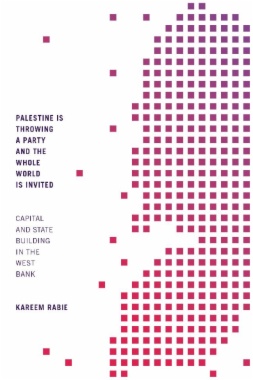In 2008, Palestinian Prime Minister Salam Fayyad invited international investors to the first-ever Palestine Investment Conference, which was designed to jump-start the process of integrating Palestine into the global economy. As Fayyad described the conference, Palestine is “throwing a party, and the whole world is invited.” In this book Kareem Rabie examines how the conference and Fayyad's rhetoric represented a wider shift in economic and political practice in ways that oriented state-scale Palestinian politics toward neoliberal globalization rather than a diplomatic two-state solution. Rabie demonstrates that private firms, international aid organizations, and the Palestinian government in the West Bank focused on large-scale private housing development in an effort toward state-scale economic stability and market building. This approach reflected the belief that a thriving private economy would lead to a free and functioning Palestinian state. Yet, as Rabie contends, these investment-based policies have maintained the status quo of occupation and Palestine's subordinate and suspended political and economic relationship with Israel.
- Cover
- Contents
- Introduction�������������������
- 1. The Site
- 2. Developers and Designers
- 3. Image, Process, and Precedent
- 4. Public Urban Planning
- 5. Housing Shortage and National Priority
- 6. Public-Private Partnership
- 7. Buyers and Villagers
- 8. Critique, Capital, and the Landscape
- 9. Settlers and the Land
- 10. The Law, Mirroring, and the State
- Conclusion�����������������
- Acknowledgments����������������������
- Notes������������
- References�����������������
- Index������������
- A
- B
- C
- D
- E
- F
- G
- H
- I
- J
- K
- L
- M
- N
- O
- P
- Q
- R
- S
- T
- U
- V
- W
- Y
- Z

